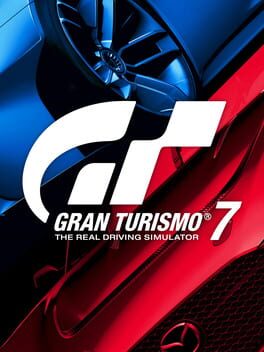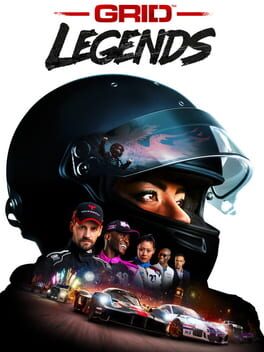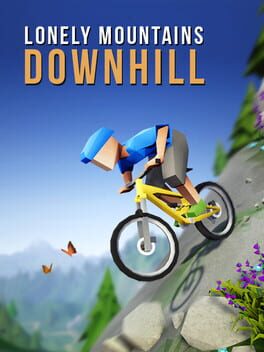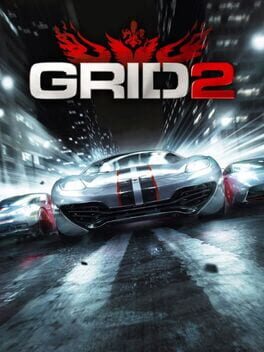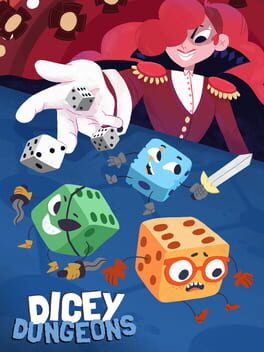inwhiterooms
11 reviews liked by inwhiterooms
Gran Turismo 7
2022
Gran Turismo 7 is what happens when somebody has so much fun knowing that they could that they didn’t stop to think whether they should. Kazunori Yamauchi’s borderline fetish for awkward design choices reaches its ugly peak with a game that doesn’t know what it wants to be.
The career mode is basically a barely 10-Hour long slog of fetch quests, with the odd side objective thrown in to stop you from getting bored. Most of them involve going to a location on the World Map and using one of its facilities, a process that takes approximately thirty seconds.
This is made more frustrating by the fact that Gran Turismo 7 seems to assume that the player has never seen a car in real life nor knows what a car is, with tutorials that are so patronising and AI that are so catastrophically slow that it feels like an insult directed towards long-time fans of the series. Even after completing all of the menu books, which unlocks a bunch of harder “Expert Level” races, the AI still pose little to no challenge.
Buying cars to use in races requires a level of grinding I have never seen before in a racing game, thanks to pitifully low payouts for many of the game’s early races. Some of the post-endgame events are more generous, with WTC800 at Sardegna currently the best race in the game for grinding cash, but the sometimes obscene prices for cars again makes it a slog. Legendary Cars Dealership, you know who you are.
However, it’s not all doom and gloom. GT7 is arguably the best demonstration of the PlayStation 5’s capabilities, with stunning visuals tied together by gorgeous lighting and almost nonexistent loading times thanks to lightning-fast SSD technology.
The physics are satisfying and direct, with punishing consequences for pushing too hard. However, it never feels unfair except for the odd car or two. Those are the exception, rather than the rule.
Sport Mode is a clusterfuck, but it’s a fun clusterfuck. Racing in the No DR/SR Tracking races is beautiful carnage, with paint being traded for several laps straight, whilst the ranked races are generally a little bit calmer if still unhinged at times and really help with practicing close-quarters racing if you can find a lobby that doesn’t have too many morons.
Finally is something that was missing from Gran Turismo Sport: A sense of ownership. Every car is like a Tamagotchi, with three base stats that deteriorate as you drive them - Oil, Engine and Chassis. Over time, you have to perform maintenance on these cars, which makes you feel like you truly are the owner of a custom-built Toyota GR86 that pumps out almost 400hp through that fully customisable Manual transmission you installed.
In Gran Turismo 7, cars are not just your primary means of competition - They are living, breathing creatures with a heart and soul. And that’s what the game tries to teach you during those agonising 10 hours of listening to some nondescript Italian man tell you how Rallying works, even though you own or have owned every single game in the Colin McRae Rally/DiRT series and play them every single day.
Buy Gran Turismo 7, but only if you can live with a glorified 10 hour long tutorial. And you don’t mind Always Online DRM. Otherwise, something like Need for Speed or Forza is probably more your… Speed.
The career mode is basically a barely 10-Hour long slog of fetch quests, with the odd side objective thrown in to stop you from getting bored. Most of them involve going to a location on the World Map and using one of its facilities, a process that takes approximately thirty seconds.
This is made more frustrating by the fact that Gran Turismo 7 seems to assume that the player has never seen a car in real life nor knows what a car is, with tutorials that are so patronising and AI that are so catastrophically slow that it feels like an insult directed towards long-time fans of the series. Even after completing all of the menu books, which unlocks a bunch of harder “Expert Level” races, the AI still pose little to no challenge.
Buying cars to use in races requires a level of grinding I have never seen before in a racing game, thanks to pitifully low payouts for many of the game’s early races. Some of the post-endgame events are more generous, with WTC800 at Sardegna currently the best race in the game for grinding cash, but the sometimes obscene prices for cars again makes it a slog. Legendary Cars Dealership, you know who you are.
However, it’s not all doom and gloom. GT7 is arguably the best demonstration of the PlayStation 5’s capabilities, with stunning visuals tied together by gorgeous lighting and almost nonexistent loading times thanks to lightning-fast SSD technology.
The physics are satisfying and direct, with punishing consequences for pushing too hard. However, it never feels unfair except for the odd car or two. Those are the exception, rather than the rule.
Sport Mode is a clusterfuck, but it’s a fun clusterfuck. Racing in the No DR/SR Tracking races is beautiful carnage, with paint being traded for several laps straight, whilst the ranked races are generally a little bit calmer if still unhinged at times and really help with practicing close-quarters racing if you can find a lobby that doesn’t have too many morons.
Finally is something that was missing from Gran Turismo Sport: A sense of ownership. Every car is like a Tamagotchi, with three base stats that deteriorate as you drive them - Oil, Engine and Chassis. Over time, you have to perform maintenance on these cars, which makes you feel like you truly are the owner of a custom-built Toyota GR86 that pumps out almost 400hp through that fully customisable Manual transmission you installed.
In Gran Turismo 7, cars are not just your primary means of competition - They are living, breathing creatures with a heart and soul. And that’s what the game tries to teach you during those agonising 10 hours of listening to some nondescript Italian man tell you how Rallying works, even though you own or have owned every single game in the Colin McRae Rally/DiRT series and play them every single day.
Buy Gran Turismo 7, but only if you can live with a glorified 10 hour long tutorial. And you don’t mind Always Online DRM. Otherwise, something like Need for Speed or Forza is probably more your… Speed.
Grid Legends
2022
So, I’m not gonna lie, seeing the two letters “E” and “A” listed in the credits of this game had me worried. In fact, that’s an understatement: I was positively bricking it. Was EA about to kill one of my favourite racing game series of all time with yet another cashgrab pile of greedy filth? Thankfully, no.
GRID Legends feels almost like an apology for the terminally dull series reboot back in 2019, a game that was so devoid of personality it felt like playing through a game that was made whilst watching a tutorial about how to build a functional racing game: You buy cars, you race them, you win said races, you buy more cars with the money you just won, cycle repeats. By the time I got to the final faceoff against Ravenwest I was functioning entirely on autopilot.
GRID Legends fixes that by bringing back some fan-favourite game modes such as Elimination and Multiclass Racing, touching up the visuals to make the game more colourful, adjusting the progression to make things less of a slog and adding something completely new as a sort of amuse bouchée: A story mode.
Said story mode is called “Driven to Glory,” a faux-documentary based on the fictional GRID World Series that follows the trials and tribulations of Seneca Racing, a down-on-its-luck backmarker team looking to make it big in the Pro Leagues and disrupt the status quo by taking down long-time series antagonists Ravenwest Motorsport. It’s actually a lot more fun than it sounds.
The cast in particular is what makes the dish (To steal a quote from character Marcus Ado), with an excellent ensemble of characters that all have their own unique personalities: Nathan McKane is arrogant and brash, Yume Tanaka has a veneer of Kimi Räikkonen-esque steeliness and Valentin Manzi has a playful charm that adds some comic relief to what is otherwise a surprisingly dark storyline.
The plot is no narrative masterpiece and it certainly won’t win any Oscars, primarily due its predictability (I don’t want to spoil the ending for you but you probably already know what it is anyway), but it’s pretty solid and should keep your attention until the credits roll - And trust me, you do not want to skip the credits, the mid-credits scene is a worthy payoff.
Moving on from the story, we have the campaign. It’s largely the same as GRID 2019, but it’s been reworked to encourage less linear gameplay and more jumping between disciplines: Sponsor objectives usually require you to drive certain distances or do certain things in certain cars, upgrades encourage you to try as many cars as possible and find one from each class that suits your driving style and the greater variety of events help keep things fresh. It’s a much more rewarding experience as a result, and a more fulfilling one too.
However, the game has some glaring issues that stop me from giving this a full five stars. The AI is my first port of call - It sucks.
Ok, that’s exaggerating a little. They’re not terrible - They’re actually pretty smart and every driver has their own personality that makes each one just as fun to race against as the last, but they’re far too slow. Even on the highest “Legend” difficulty, I found myself winning races by over 5 seconds with incredible ease, and that was whilst handicapping myself by using the slowest car in each class.
Next is the vehicle balance. Some classes have cars that simply do not belong, whether that’s because they’re too fast or too slow. Trackday Hypercars is the perfect example: The Bugatti Veyron SS is the second fastest car in the entire game in terms of top speed, making it hideously overpowered on speed tracks. Meanwhile, the Ferrari FXX-K has to share a track with this damn thing, and if the track you’re racing on has a straight longer than 0.5 Miles you’re gonna have a bad day. I could go on, but really some cars need to be moved around or even placed in their own class.
Finally, the graphics & sound design. Generally, GRID Legends is a pretty good looking game. It even manages to improve upon its predecessor with improved reflections to make rain look a bit less flat and higher-resolution shadows for some satisfying trackside lighting when racing under the stars. However, the hyperreal visual design starts to hurt your eyes after a little while, with blinding lights that inexplicably cast fog across the track even if it isn’t actually foggy and so much visual noise that it can be hard to decipher what’s going on half the time.
Sounds are also pretty good in most cases: Cars are varied in tone and exhaust note, ranging from ear-piercing shrieks to earth-shaking burbles, the environmental audio is fully reactive (Listen out for those screaming fans when you nail a daring inside pass) and the soundtrack is energetic. However, some cars are a little too quiet and easily get lost in the background if you have the music turned on, and there is an element of sound file recycling for vehicles with exotic engines such as Rotaries.
Overall, GRID Legends takes what Codemasters has learnt from the tepid reception to the series’ 2019 reboot and builds on it, with a more open-ended career structure that encourages experimentation, improved visuals for a more next-gen feel and some physics tweaks to make the game more accessible to newcomers. I wholly recommend buying GRID Legends, at least on offer, especially if you didn’t like its predecessor. The GRID is waiting… and trust me, it’s much healthier this time around.
GRID Legends feels almost like an apology for the terminally dull series reboot back in 2019, a game that was so devoid of personality it felt like playing through a game that was made whilst watching a tutorial about how to build a functional racing game: You buy cars, you race them, you win said races, you buy more cars with the money you just won, cycle repeats. By the time I got to the final faceoff against Ravenwest I was functioning entirely on autopilot.
GRID Legends fixes that by bringing back some fan-favourite game modes such as Elimination and Multiclass Racing, touching up the visuals to make the game more colourful, adjusting the progression to make things less of a slog and adding something completely new as a sort of amuse bouchée: A story mode.
Said story mode is called “Driven to Glory,” a faux-documentary based on the fictional GRID World Series that follows the trials and tribulations of Seneca Racing, a down-on-its-luck backmarker team looking to make it big in the Pro Leagues and disrupt the status quo by taking down long-time series antagonists Ravenwest Motorsport. It’s actually a lot more fun than it sounds.
The cast in particular is what makes the dish (To steal a quote from character Marcus Ado), with an excellent ensemble of characters that all have their own unique personalities: Nathan McKane is arrogant and brash, Yume Tanaka has a veneer of Kimi Räikkonen-esque steeliness and Valentin Manzi has a playful charm that adds some comic relief to what is otherwise a surprisingly dark storyline.
The plot is no narrative masterpiece and it certainly won’t win any Oscars, primarily due its predictability (I don’t want to spoil the ending for you but you probably already know what it is anyway), but it’s pretty solid and should keep your attention until the credits roll - And trust me, you do not want to skip the credits, the mid-credits scene is a worthy payoff.
Moving on from the story, we have the campaign. It’s largely the same as GRID 2019, but it’s been reworked to encourage less linear gameplay and more jumping between disciplines: Sponsor objectives usually require you to drive certain distances or do certain things in certain cars, upgrades encourage you to try as many cars as possible and find one from each class that suits your driving style and the greater variety of events help keep things fresh. It’s a much more rewarding experience as a result, and a more fulfilling one too.
However, the game has some glaring issues that stop me from giving this a full five stars. The AI is my first port of call - It sucks.
Ok, that’s exaggerating a little. They’re not terrible - They’re actually pretty smart and every driver has their own personality that makes each one just as fun to race against as the last, but they’re far too slow. Even on the highest “Legend” difficulty, I found myself winning races by over 5 seconds with incredible ease, and that was whilst handicapping myself by using the slowest car in each class.
Next is the vehicle balance. Some classes have cars that simply do not belong, whether that’s because they’re too fast or too slow. Trackday Hypercars is the perfect example: The Bugatti Veyron SS is the second fastest car in the entire game in terms of top speed, making it hideously overpowered on speed tracks. Meanwhile, the Ferrari FXX-K has to share a track with this damn thing, and if the track you’re racing on has a straight longer than 0.5 Miles you’re gonna have a bad day. I could go on, but really some cars need to be moved around or even placed in their own class.
Finally, the graphics & sound design. Generally, GRID Legends is a pretty good looking game. It even manages to improve upon its predecessor with improved reflections to make rain look a bit less flat and higher-resolution shadows for some satisfying trackside lighting when racing under the stars. However, the hyperreal visual design starts to hurt your eyes after a little while, with blinding lights that inexplicably cast fog across the track even if it isn’t actually foggy and so much visual noise that it can be hard to decipher what’s going on half the time.
Sounds are also pretty good in most cases: Cars are varied in tone and exhaust note, ranging from ear-piercing shrieks to earth-shaking burbles, the environmental audio is fully reactive (Listen out for those screaming fans when you nail a daring inside pass) and the soundtrack is energetic. However, some cars are a little too quiet and easily get lost in the background if you have the music turned on, and there is an element of sound file recycling for vehicles with exotic engines such as Rotaries.
Overall, GRID Legends takes what Codemasters has learnt from the tepid reception to the series’ 2019 reboot and builds on it, with a more open-ended career structure that encourages experimentation, improved visuals for a more next-gen feel and some physics tweaks to make the game more accessible to newcomers. I wholly recommend buying GRID Legends, at least on offer, especially if you didn’t like its predecessor. The GRID is waiting… and trust me, it’s much healthier this time around.
Telling Lies
2019
(Reviewed after playing the entire "Sam Barlow Trilogy" as I call it: Her Story, Telling Lies, & Immortality)
Bigger in scope than Her Story and better for it. Telling Lies is another FMV game by Sam Barlow. This time we get more characters, a more complicated storyline and way more themes and undertones while still maintaining that signature Barlow style. Just like I said in my Her Story review (here) I found these games best enjoyed over Discord with friends, so that we could share our theories and react to the various discoveries together.
The main draw this time is that most video clips are of some sort of video call where you can only see one side at a time. This puts significantly heavier emphasis on the acting chops and character depth and luckily, Telling Lies triumphs in both these regards. David Smith is such a fascinating character; he's so hard to love yet somehow even harder to hate. The other characters here are memorable as well, but Logan Marshall-Green brings David to life in a way that only gets topped by certain actors and actresses in Immortality. Water is life.
My main problem with all of Barlow's games (though especially noticeable with this one, I feel) is how you end up running out of interesting clips to find and instead have to dredge through negligible search results until you find something juicy again. This always occurs in the final hours right before you hit the credits, and at that point you're already hooked into the story so it's not that big of a deal. Still, it does make me wonder if the self-paced nature of these games can be more detrimental than beneficial. Luckily Immortality was affected the least by this, from my experience.
Anyway, play this game. Play all of Sam Barlow's games, honestly. They're super unique and well-executed and I wish more people talked about them.
Bigger in scope than Her Story and better for it. Telling Lies is another FMV game by Sam Barlow. This time we get more characters, a more complicated storyline and way more themes and undertones while still maintaining that signature Barlow style. Just like I said in my Her Story review (here) I found these games best enjoyed over Discord with friends, so that we could share our theories and react to the various discoveries together.
The main draw this time is that most video clips are of some sort of video call where you can only see one side at a time. This puts significantly heavier emphasis on the acting chops and character depth and luckily, Telling Lies triumphs in both these regards. David Smith is such a fascinating character; he's so hard to love yet somehow even harder to hate. The other characters here are memorable as well, but Logan Marshall-Green brings David to life in a way that only gets topped by certain actors and actresses in Immortality. Water is life.
My main problem with all of Barlow's games (though especially noticeable with this one, I feel) is how you end up running out of interesting clips to find and instead have to dredge through negligible search results until you find something juicy again. This always occurs in the final hours right before you hit the credits, and at that point you're already hooked into the story so it's not that big of a deal. Still, it does make me wonder if the self-paced nature of these games can be more detrimental than beneficial. Luckily Immortality was affected the least by this, from my experience.
Anyway, play this game. Play all of Sam Barlow's games, honestly. They're super unique and well-executed and I wish more people talked about them.
Overwhelmed and lost me when I started playing months ago. Came back to it recently, became absolutely immersed, finding it hard to put down until the credits rolled. Unmatched freedom in choice and just how detailed each skill tree, piece of dialogue, narrative thread and character, no matter how minor is. Continued to overwhelm me but in a way where I wanted to delve deeper and deeper, discover more about Martinaise, Revachol as a whole, my character’s history, and mostly not disappoint Kim. I love Kim. Gonna have to sit and unpack this fascinating, strangely emotional, esoteric journey for a long time.
One of a select few games where you'll find just as much fun ramming headfirst into the same rock 300 times as speed running a course first try. The core gameplay here really is just that strong, even with a very grindy progression system and little else to do besides jumping off every cliff the 4 maps have to offer (minus DLC). It's only a shame that it becomes dry within the first 5 hours and overstays its welcome if you're looking to go for 100%. For those first few hours though you'll be hard pressed to find a more addictive indie game out there.
Vampire Survivors
2021
Vampire Survivors
2021
Surprised by how little I hate this. On paper, it's pure gunk of a game, all about being a little seratonin plant that stimulates the brain with the fun chemicals by employing the most base level of visual power escalation. It's not just number go up, it's projectile go so Up you can barely see the field anymore. It's all pretty basic stuff, but that's the appeal - a game stripped down to bare essentials, the character arc of a fully-fledged Metroidvania condensed to maybe 30-minute intervals. A thin Roguelite affair with all the trappings that smacks of a Flash golden-era desktop toy. I'm happy to call this game shite, but it's like yelling at a cheap stress ball and I am well aware of the desperate things we do when we have to listen to a podcast. The veneer of Vampire Survivors is pretty hilarious, uses Castlevania's aesthetic right down to stealing monster designs and items and stuff, alongside this unashamed casino spin where you're pulling gatchas from chests and rolling for good pickups. The music and sound effects sound like a pub fruit machine constantly screaming for attention all the while I'm mowing down the devil's legions in gothic castles.
I see the appeal, I really do, but I'm one of those freaks that watches a movie without tearing my eyes off the screen to blink. Stripping down a game to the point where it is nothing but mechanical gratification isn't my thing, I just need the narrative thrust or linear hand-crafted oven-cooked pomp and care or else a game just loses me and I forget it the moment it exits my peripheral. If I was a kid that had to pretend to do work in IT class in the year of our lord 2022 this would probably be my go-to, but I was definitely better off doing the same with Warning Forever.
I see the appeal, I really do, but I'm one of those freaks that watches a movie without tearing my eyes off the screen to blink. Stripping down a game to the point where it is nothing but mechanical gratification isn't my thing, I just need the narrative thrust or linear hand-crafted oven-cooked pomp and care or else a game just loses me and I forget it the moment it exits my peripheral. If I was a kid that had to pretend to do work in IT class in the year of our lord 2022 this would probably be my go-to, but I was definitely better off doing the same with Warning Forever.
Grid 2
2013
What an underrated gem. Sure, judging it as a successor of Race Driver: Grid, it doesn't hold up in many ways but as it's own entity it's really good. It's important not to view it as a simulator or even a simcade because it's very much an arcade game.
I've just finished the campaign and while it was mostly a grind fest and by the end I was sick of all the same locations and turns (especially Dubai) I'm still happy I stuck through it. The game really makes you feel like some viral racing star and I liked my organic rivalry with the other drivers on the track. Bruno Silva is really just a yellow-orange car that you only see on the track but everytime I had to fight with him for the first place it felt personal. Especially when he would ram me in the Face Offs.
The twisty hillside races were the absoluty highlights of the game. Halfway through I realized that I can just turn of the in-game music and blast some eurobeat from Spotify. Highly recommended for everyone.
The drifting mechanic is different from the predecessor. I'd say it's a step back but I didn't mind it. However, I straight up skipped the Drift races.
Overall, it's an initially flawed game that got better with age.
I've just finished the campaign and while it was mostly a grind fest and by the end I was sick of all the same locations and turns (especially Dubai) I'm still happy I stuck through it. The game really makes you feel like some viral racing star and I liked my organic rivalry with the other drivers on the track. Bruno Silva is really just a yellow-orange car that you only see on the track but everytime I had to fight with him for the first place it felt personal. Especially when he would ram me in the Face Offs.
The twisty hillside races were the absoluty highlights of the game. Halfway through I realized that I can just turn of the in-game music and blast some eurobeat from Spotify. Highly recommended for everyone.
The drifting mechanic is different from the predecessor. I'd say it's a step back but I didn't mind it. However, I straight up skipped the Drift races.
Overall, it's an initially flawed game that got better with age.
Dicey Dungeons
2019
Had this at a 3.5 at first, but after playing some of the later chapters for each character I had to lower this to a 3 star.
Runs become unbelievably RNG-heavy to the point where some runs die in the first 2 levels because of quality difference in die rolls, and later floors often turn into a rage-inducing slog as you watch the enemy roll multiples freezes, blinds, shocks, poison, curses and what not multiple times in a row with one fight with bad RNG potentially, if not probably, dooming the entire run.
The game wants you to build for every encounter but then almost never actually gives you the tools to do so. There are some good idea's here and there is fun to be had in the earlier levels, but a game in which you lose an entire run because of 1 fight with bad RNG just kills my drive to play it after a while.
Runs become unbelievably RNG-heavy to the point where some runs die in the first 2 levels because of quality difference in die rolls, and later floors often turn into a rage-inducing slog as you watch the enemy roll multiples freezes, blinds, shocks, poison, curses and what not multiple times in a row with one fight with bad RNG potentially, if not probably, dooming the entire run.
The game wants you to build for every encounter but then almost never actually gives you the tools to do so. There are some good idea's here and there is fun to be had in the earlier levels, but a game in which you lose an entire run because of 1 fight with bad RNG just kills my drive to play it after a while.
Canabalt
2009
If you told Adam Saltsman during the 5 hour game jam he created Canabalt in that within less than a decade, his work would inspire Nintendo to release a Mario game with the same central premise, do you think he would've believed you?
Canabalt, though not the original creator of the mechanic, is the modern fountainhead of the endless runner. It's no exaggeration to say that this concept has made copycats tens of millions of dollars in the years since its release. Far more importantly, it has come to define what it means to play games on a mobile device - both introducing interactive media to millions, but also bestowing the gift of play to the disabled.
As a game, Canabalt is good at what it does, though it doesn't do a lot. It's intuitive and simple as games can be, though it does carry with it some thematic heft and intrigue, picking an interesting "War of the Worlds"-like setting and building its mechanics around it. You dive in and out of windows, buildings crumble under your feet, bombs fall from the sky, the limbs of giant walkers appear suddenly in lieu of any permanent structure. It's fairly cinematic, all in all.
As a full-bodied game on PC, it is difficult for Canabalt to hold much attention, though its smattering of challenge modes and co-op play do make a solid attempt. It's worth a play for its legacy but also because it is genuinely fun for the time you'll spend with it.
Canabalt, though not the original creator of the mechanic, is the modern fountainhead of the endless runner. It's no exaggeration to say that this concept has made copycats tens of millions of dollars in the years since its release. Far more importantly, it has come to define what it means to play games on a mobile device - both introducing interactive media to millions, but also bestowing the gift of play to the disabled.
As a game, Canabalt is good at what it does, though it doesn't do a lot. It's intuitive and simple as games can be, though it does carry with it some thematic heft and intrigue, picking an interesting "War of the Worlds"-like setting and building its mechanics around it. You dive in and out of windows, buildings crumble under your feet, bombs fall from the sky, the limbs of giant walkers appear suddenly in lieu of any permanent structure. It's fairly cinematic, all in all.
As a full-bodied game on PC, it is difficult for Canabalt to hold much attention, though its smattering of challenge modes and co-op play do make a solid attempt. It's worth a play for its legacy but also because it is genuinely fun for the time you'll spend with it.
